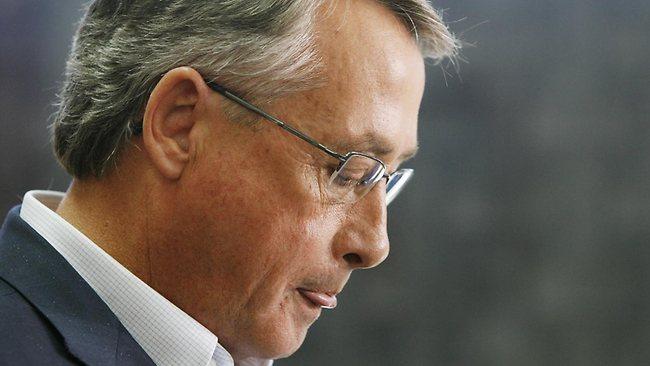Political rhetoric miles off economic reality
WITH the global crisis continuing, three aspects to the economic debate in this country warrant further scrutiny.

WITH the global economy entering what looks likely to be a protracted crisis, three aspects to the economic debate in this country warrant further scrutiny.
Wayne Swan's politically desperate pledge that a budget surplus will be achieved in 2012-13 is looking shaky at best. The opposition's claim that we are riddled with unsustainable debt is fallacious. And the fact that the National Broadband Network is off the budget books is a travesty.
These three misguided approaches to the economic arguments in Australia only highlight how underwhelming the debate coming from our political leaders is at the moment.
The surplus target for 2012-13 was always artificially propped up by political calculations. Labor felt that it needed to get the budget back into surplus ahead of the next election. In particular, it wanted to score points for doing so in advance of it actually happening. A minister told me that if they didn't achieve the surplus they were finished as a government. As I said, it's a political not an economic calculation.
Virtually since elected, the Labor government has relied on rubbery forecasts, which have proven to be inaccurate, so that it can pat itself on the back for its surplus target -- taking credit for something not yet achieved.
Because the global financial crisis stripped revenue off the budget, and because Labor wasn't prepared to make enough tough decisions to redress this fact in the years that followed, a surplus target was the political answer to opposition attacks of economic mismanagement. Now Swan and his economic team have to live with the fact that if they don't get us back to surplus -- despite a likely downturn in revenue -- the public won't tolerate excuses.
The global meltdown, if it continues, will strip significant revenue out of government coffers. Exports will suffer, domestic spending will fall away, increasing unemployment will put up government costs, and large company profits will be a thing of the past. Throw in a possible need for more stimulus -- although doing that in a high inflation environment is problematic -- and the budget bottom line ain't looking like it's driving towards a surplus in less than two years time.
But putting to one side Labor's political woes, our economy can certainly afford more debt, if that is hard to avoid. Coalition efforts to liken our economic problems with those of Europe or other parts of the world are utterly fallacious. Treasury spokesman Joe Hockey attempted to link the situation in Greece with that of Australia on Melbourne radio last week. But Greece's debt is about 125 per cent of GDP, Australia's is about 7 per cent. In Canada, the US and Britain -- all nations Australia likes to compare itself with -- debt is variously between 40 per cent and 80 per cent of GDP.
Granted, now is the time to keep an eye on our debt level because we don't want it to come close to reflecting debt levels abroad. But to suggest we have a "debt problem", as the Coalition regularly does, is rubbish.
But one area of policy development by the government that will surely contribute to debt levels more substantially than is projected is the rollout of the NBN. Malcolm Turnbull told Sky News's Australian Agenda on Sunday he did not think the costings for the NBN -- about $40 billion -- would prove accurate. Governments always have cost blowouts when embarking on large-scale spending programs.
More concerning is the timing of the NBN rollout and that it is happening off budget. Because Labor claims it will one day turn a profit, it doesn't include the cost of building the NBN in its budget figures. That's $40bn, maybe more, in costs not in the budget. And if it doesn't turn the profit projected, as many analysts expect, debt projections will rise significantly.
Fortunately, when that happens, we will be coming off a much lower debt loading than other parts of the world, despite what the opposition tries to claim.
Whether it's a surplus projection made for the wrong reasons which looks unlikely anyway, an opposition scare campaign on debt which isn't warranted, or a spendathon on a technology rollout unlikely to meet the profit forecast, the current worldwide economic difficulties casts light on the divide between political rhetoric and economic realities in this country.


